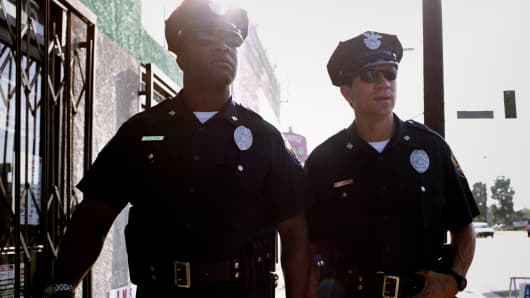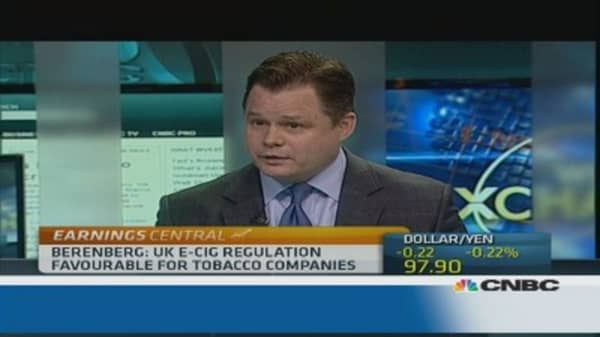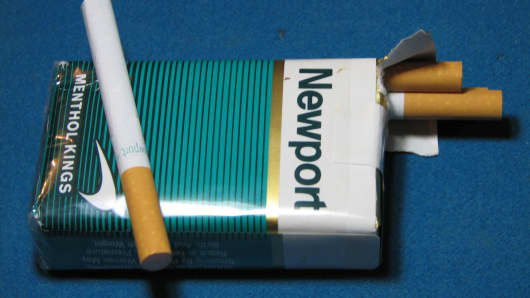Stop—a ban on menthol cigarettes—in the name of the law!
A number of current and former top-ranking law enforcement officials from the tobacco-producing South have blasted a potential menthol cigarette ban as the Food and Drug Administration weighs restrictions on those products, contending that prohibition will spur smuggling, counterfeit cigs and other organized crime.
Their comments to the FDA mirror arguments being made by Big Tobacco companies that have cited the specter of a menthol black market.
But tobacco critics and a former top New York state tax official scoffed at those claims, and accused tobacco companies of scare tactics that divert attention from the health damage caused by menthol cigs.
The FDA on Tuesday granted a 60-day extension to the time for public comments on possible menthol regulations. That extension until Nov. 22 came after requests from Big Tobacco companies, including Lorillard—whose Newport menthol brand accounted for 88 percent of the company's sales last year, and which is the second-biggest selling U.S. cigarette.
The FDA's move toward potential regulations comes after a recent agency study found that menthol cigarettes may "pose a public health risk above that seen with non-menthol cigarettes." The cigarettes, whose flavoring reduces the harshness of smoke, appear to be more addictive than unflavored cigarettes, the study indicated. Menthol cigarettes also are particularly popular with young smokers and African-Americans.
"The contraband market would thrive under a ban, and would increase criminal activity, including activities by organized crime and terrorist groups," wrote Paul Carey III, chief of enforcement for the Northern Virginia Cigarette Tax Board, in a letter submitted to the FDA's online comments section. Carey told CNBC.com that cigarette smuggling is an ongoing problem and linked to violent crime in his jurisdiction.
(Read more: E-cigarette sales are smoking hot)
Carey's views were echoed in comments filed by the 1,000-member Alabama State Troopers Association, a former supervisory U.S. marshal from North Carolina and Michael Robertson, former director of the North Carolina Alcohol Law Enforcement agency, who most recently headed that state's Department of Motor Vehicles.
The black market concerns of those Southern-based law enforcement officials, both past and present, are being raised three years after similar arguments were made by other law enforcement groups to the FDA's Tobacco Products Scientific Advisory Committee, which is tasked with examining the public-health consequences of menthol cigarettes.
Back then, those concerns were raised by the 40,000-member National Troopers Coalition, an advocacy group for state troopers and highway patrol officers, as well as the National Organization of Black Law Enforcement Executives, which warned that a menthol ban "would create flourishing criminal enterprises"






